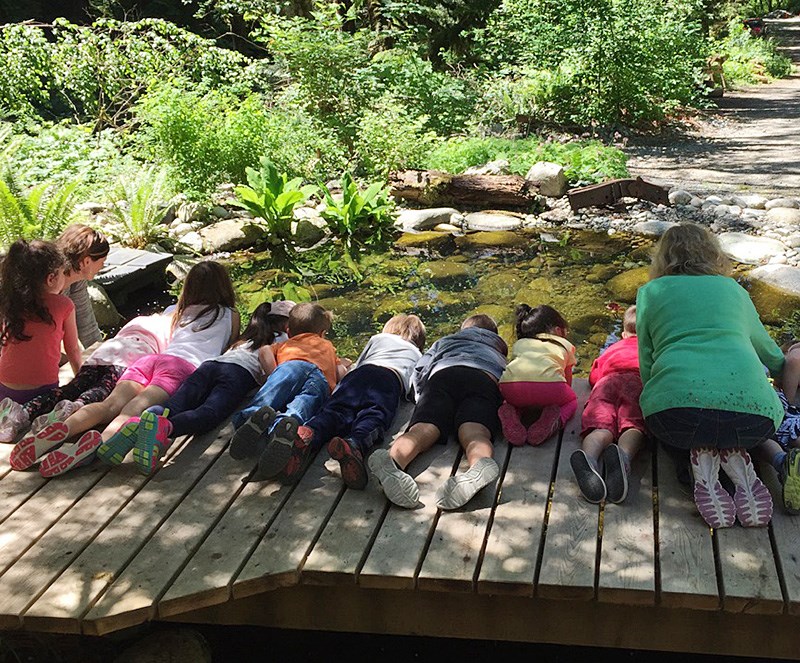Children may lose an opportunity to get their first glimpse of fish, bugs and wildlife and how to care for them if a long-running education program at a Port Moody hatchery comes to a close.
And while it’s not likely children will have to get their first nature experience from a video or a book in the nature preserve that is the Tri-Cities, balancing screen time with hands on experience is a constant challenge.
The loss of a vital program for teaching students about the environment and their role in it will mean fewer resources for teachers, retired educators told trustees Tuesday.
“We’re not raising fish, we’re raising citizens,” hatchery co-founder Rod MacVicar commented during a presentation to the board’s budget meeting last week.
Within a year or less, funds received when the hatchery burned down and was rebuilt will run out, leaving the education centre, built with volunteer support, grants, and sponsors, without an eduction programmer.
It’s a loss that could be felt deeply by local school teachers who currently use the program for field trips to teach hands-long learning about the environment to children from kindergarten to high school.
MacVicar and Ruth Foster, teachers who started the hatchery as an education program for Centennial high school students over 40 years ago, are asking the district to start paying for some of the services they’ve used for free or at a highly-subsidized cost for years.
As directors of the Burrard Inlet Marine Enhancement Society (BIMES), which runs the hatchery and education centre, the two asked trustees for funding for a teacher, who would work out of the education centre located off Ioco Road in PoMo.
“We are realistic and recognize that there are multiple demands on the SD43 budget. At a minimum, we would like to establish a long-term partnership with SD43. We are receptive to sharing our educator with the district,” Foster said.
Currently, the program runs with a part-time teacher paid for by BIMES, who also works with SD43, and the courses offered are suitable for all grades and fit with the provincial school curriculum.
Kevin Ryan, BIMES president, said it makes sense for SD43 to place a teacher or a part-time teacher at the hatchery because it functions as an outdoor classroom, with indoor space for programs, and he hopes to hear some good news when the board finalizes its budget next Tuesday.
“I’m hopeful, until they say no, you’ve got to keep your fingers crossed,” Ryan said.
Among the programs at risk are the Water Bug Workshop, for children Grades 1-2, Salmon Forests for Grades 4-12, and Inside-A-Fish for Grades 4-12, just to name a few.



